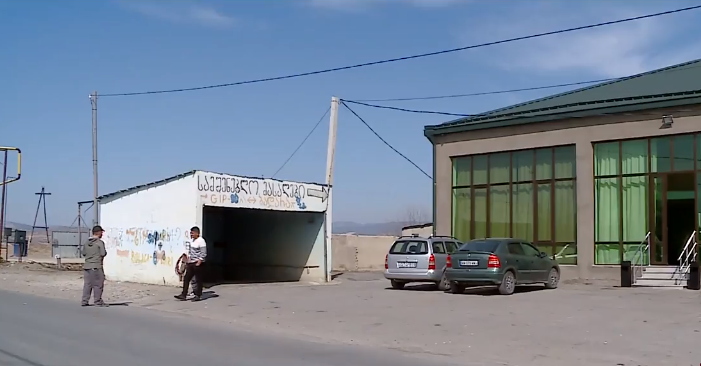საერთო ცხელი ხაზი +995 577 07 05 63


Photo source: Mtavari Arkhi
Human Rights Education and Monitoring Center (EMC) responds to the violent conflict between youngsters in the village of Mughanlo and urges the state to undertake systemic preventive policy aimed at peace and integration.
According to information spread by media, on March 10 conflict arose between local Georgians and Azerbaijani youngsters on the issue of occupying a gathering spot in the village, which became serious in the evening and ended up in violence between tens of youngsters. Several people were wounded and injured. As local villagers state, ethnic divide between the sides of the conflict and the ethnic connotation of the conflict was evident. The Ministry of Internal Affairs started to investigate the case. At this point, no state body has communicated any additional official information on the incident.
Village Mughanlo is located in the municipality of Gardabani as part of the Sartichala settlement. 4210 people live in the village, mostly populated by ethnic Azerbaijani population. In turn, the village Sartichala is populated by ethnic Georgians. There is no history of ethnic violence between these villages, however, residents of Mughanlo are dissatisfied with the practice of budgetary allocation and for long have been demanding separation from the village of Sartichala. Villagers of Sartichala believe that historically Mughanlo is part of Sartichala. [1] It has to be noted that residents of the village Mughanlo are not employed in the big enterprises operating in Gardabani (e.g. thermal power plant), which creates the perception of discrimination observed by EMC in the recent months as well. As the local villagers note, in this settlement ethnic Georgians and Azerbaijani live in parallel social circles and practically there are no shared social and cultural practices.
It has to be noted, that several months ago similar conflict took place in the village of Tsintskharo (region of Tetrickharo) as well. However, the state has not taken systemic preventive measures. Moreover, in the previous years, the state has not responded to the conflicts[2] arising in mixed religious communities with appropriate legal and political approaches and did not ensure adoption of positive measures necessary for building trust and reconciliation between the communities. Therefore, estrangement and isolation between communities persist.
It is evident, that practices of social isolation in mixed religious and ethnic communities on micro social level and experience of conflict related to this isolation between the communities exemplifies fundamental failure of state policy on integration and calls for radical and positive transformation of integration policy.
EMC believes that incidents taking place in Mughanlo, apart from taking appropriate reactive and preventive measures by police authorities (among others this includes mediation between parties for ensuring against the risks of recurrence) requires that relevant state bodies undertake systemic cultural, educational and political measures for the purpose of building trust and integration.
Taking all of the above into account, EMC urges:
The Ministry of Internal Affairs
The office of the State Minister of Georgia for Reconciliation and Civic Equality
[2] Freedom of Religion – Critique of Discriminatory and Nonsecular state policy, EMC, 2017, available at: https://emc.org.ge/ka/products/kvleva-religiis-tavisufleba-sakhelmtsifos-diskriminatsiuli-da-arasekularuli-politikis-kritika
[1] Unknown Suburbs: Azerbaijani Settlements of the Gardabani Municipality, Policy Study prepared by Rondeli Foundation, available: https://www.gfsis.org/files/library/pdf/Georgian--2772.pdf
The website accessibility instruction